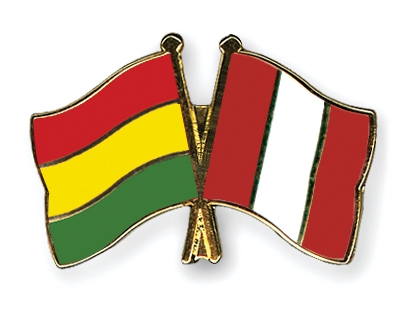
In only eight days, Peru and Bolivia have restored their recognition of the Sahrawi Arab Democratic Republic. Moroccan diplomacy is, in this respect, called upon to double its diplomatic efforts in the Latin American region.
Double slap for Moroccan diplomacy in Latin America. One after the other, Peru, on September 8, 2021, and Bolivia, on September 16, reinstated their recognition of “Sahrawi Arab Democratic Republic” (SADR), in the name of which the Sahrawi separatist movement of the Polisario Front claims the part of the Moroccan Sahara formerly colonized by Spain.
The former had however frozen, since the beginning of September 1996, its relations with the said entity, while the latter had suspended them at the end of January 2020. This brings the number of Latin American countries that recognize the “SADR” to ten, since to Bolivia and Peru must be added Cuba, Ecuador, Honduras, Mexico, Nicaragua, Panama, Uruguay and Venezuela. Only Africa, with seventeen countries, does “better”.
At same time, it is not for lack of having made many breakthroughs in the region: let us recall that at the level of the entire American continent, Morocco is today an observer member in no less than five organizations, namely the Association of Caribbean States (ACS), the Andean Community (CAN), the Organization of American States (OAS), the Iberia-American General Secretariat (SEGIB) and the Central American Integration System (SICA).
And that Colombia, Costa Rica, Guatemala, Paraguay, the Dominican Republic and El Salvador, all of which had at one time spoken to the SADR, have now frozen or withdrawn their recognition of the latter. But at the same time, an additional effort is undoubtedly required, at the risk of having to face new recognitions in the future.
Thus, Morocco still seems to rely too much on the right-wing parties of Latin America, which, it is true, are less indoctrinated and do not tend to make the usual vitiated reading of their left-wing counterparts, for whom there would be a Sahrawi “people” under occupation on their lands. It was under right-wing presidents, Alberto Fujimori and Jeanine Anez, that Peru and Bolivia broke off their relations with the SADR. But when there is an alternation, there is always the risk of losing ground: the Bolivian president, Luis Arce, and the Peruvian president, Pedro Castillo, are rightly classified on the left.
Paraguay, in particular, has, in a rather caricatural way, witnessed the influence of these changes of power, with the recognition of the “SADR” from February 2000, then five months later this recognition was frozen, then re-established, before, finally, being suspended at the beginning of January 2014, and this at the rhythm of the changes of presidents. And this is, in the end, to denote a diplomatic presence that remains far too weak.
With the turnaround in Africa, which has seen some 20 countries set up consulates in the Moroccan Sahara as of December 2019, there is evidence that genuine diplomatic work can help lead to the consolidation of Morocco’s position in relation to the defense of its territorial integrity…

Be the first to comment